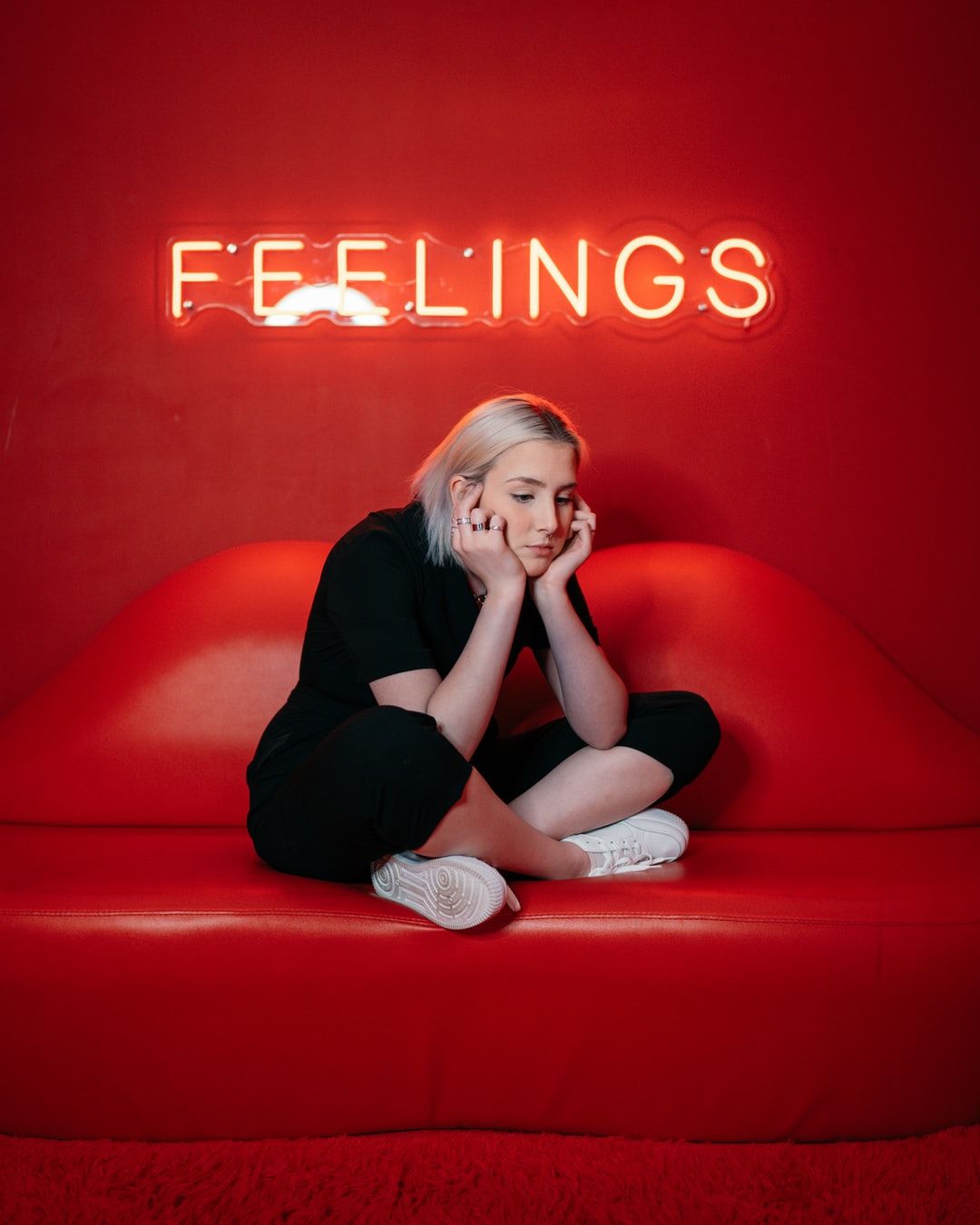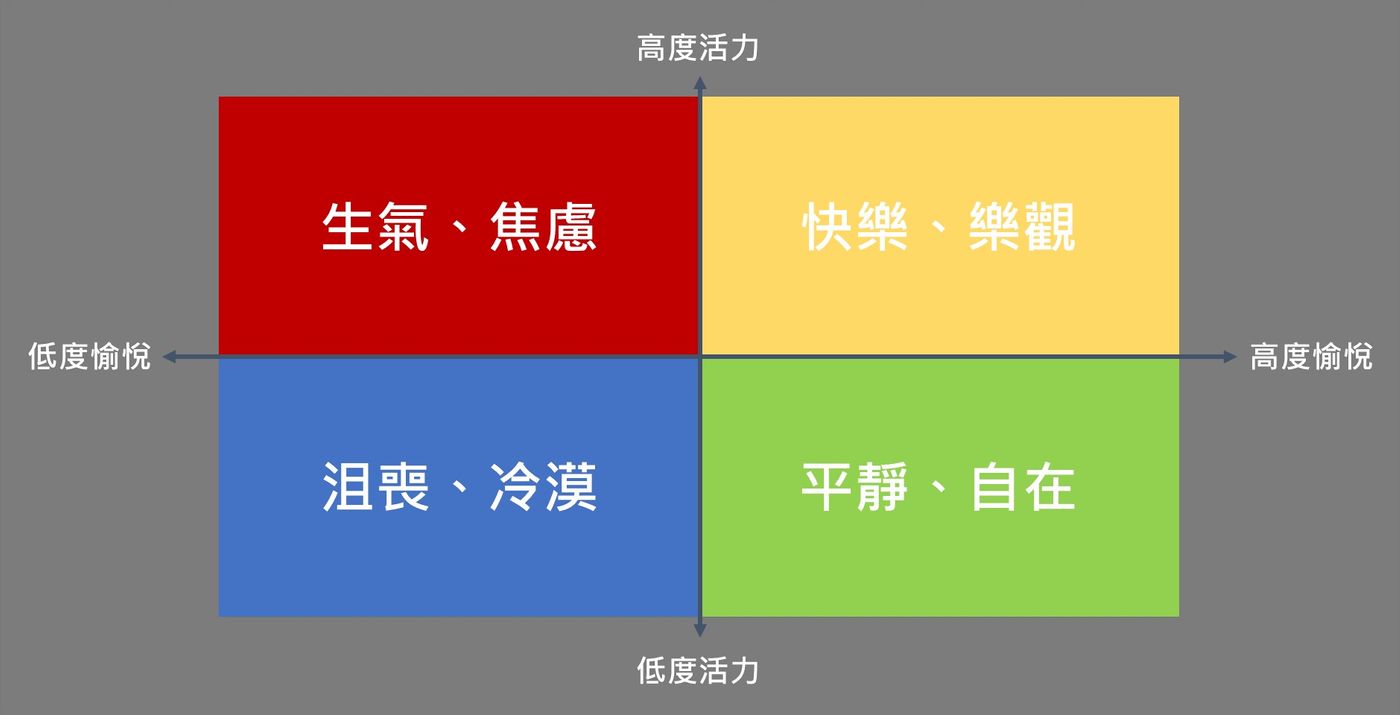
半導體外商的小小螺絲釘,遊走於廢青與社畜之間。熱愛閱讀,喜歡透過書本探索外在、內化自我。希望藉由書寫打開與世界交流的一扇窗。 個人部落格:https://maxjamesread.com/
Emotion Unlock: 5 Steps to Untie Your Emotions and Free Your Feelings!
Many years ago, when I was still studying for a master's degree, I came home from Hsinchu once and went out for dinner with my parents. Or in order to fill in the blank of the waiting list, Dad asked casually, "Ah, did you get the results of your interview at Taiwan X?" I paused and said, "I didn't inform you, maybe it's gone." I didn't expect "No. As soon as the word came out, something seemed to loosen up in my heart, and when I regained my senses, the tears slipped out, and I actually cried. Dad frowned slightly, and said displeasedly, "I didn't go on, what's so sad?"
It must be said that my father can’t speak very well, but his question reminded me: “Yes, I don’t seem to be sad when I don’t have this incident, so what is the reason for my discomfort?”
To answer this question, you have to start with emotions, and this is the theme of the book "Emotion Unlocking" to be introduced today. Author Mark. Brecht is the founding director of the Center for Emotional Literacy at Yale University, dedicated to promoting the use of the RULER method to help people understand emotions. It has been used in more than 2,000 schools and has benefited more than 10,000 people.
This article will first talk about "emotions", something that we seem familiar but unfamiliar with, then will explain the impact of emotions on us, and finally teach you to use the RULER method to get along better with emotions.
【Do you understand emotions?】
How do you feel now?
Not sure how you would answer this question? good, ok, normal, not so good? Still don't know?
Our lives are full of emotions, sadness, disappointment, anxiety, irritability, enthusiasm. But many times we tend to ignore or deliberately suppress them. Since childhood, we were taught to talk about "things", not about feelings. Even many people often say when arguing: "Don't be so emotional, okay?"
But are emotions really that bad?
In fact, many of the root causes of self-entanglement and interpersonal disputes are caused by our lack of understanding of emotions. The author said that if we repeatedly ignore our feelings and treat ourselves as machines, we will one day be attacked by emotions; on the contrary, if we can learn to distinguish, express and control our feelings, then we can use these emotions to create better Life.
If we don't express our emotions, they can pile up like debts that will eventually be called upon when the deadline comes.
- "Emotion Unlock"

【Emotional influence】
Perhaps you are still suspicious and feel that emotions are so important? Can't focus on getting things done? In fact, if the emotions are not sorted out, things will really be unsettled. The author proposes 5 aspects that can be affected by emotions:
[1. Attention, memory]
The book points out that strong and negative emotions constrain our thinking. The author said that he became the tail of a crane because he was bullied in middle school and had no intention of studying.
But negative emotions are not entirely useless. In fact, different emotions will provide different purposes for learning. For example, anxiety will make us refrain from doing things, but can make corrections and improvements; anger can bring motivation. Kobe said that he will use this "dark" power to spur himself. So the point is not to eliminate these emotions, but to understand them better so that you can take advantage of them.
[2. Decision]
Many experiments have confirmed that emotions can influence decision-making. One medical school admissions study, for example, found that applying on sunny days has a higher chance of being accepted than rainy days. The decision of the admission committee is actually affected by the weather, and students can only ask questions.
But again, this is not to emphasize that emotions can cloud judgment, but to face up to the impact of feelings. So we can examine our emotional state before making a decision. Are you worried? Could it be the negativity that made us suspicious; thought the decision was awesome? Could it be positive emotions that make us overconfident?
[3. Relationship]
Our moods are sent out like signals. Happiness makes you more accepting of others; depression makes us want to distance ourselves from others. Emotions give clues that people and humans can respond appropriately. This is why many people with autism have difficulty in interpersonal relationships. Because they have a hard time understanding these clues and can only walk a tightrope when communicating with people.
[4. Health]
Emotions can also affect health. Symptoms such as stress may cause weight loss or insomnia. Some studies have also found that children who suffer from bullying may have problems such as weakened immunity and digestive tract pain.
In the same way, this is not to ask everyone to regard negative emotions as a flood of beasts and kill them all. The author believes that the key is to judge whether the proportion of positive and negative emotions is unbalanced, and special attention should be paid if negative emotions account for the majority.
[5. Creativity]
A good feeling encourages us to take creative action. In addition, moderate stress enhances the presentation of our creativity. In the face of adversity, how to transform injury and anger into motivation is often an important key to the realization of creativity.
It can be seen that, from the rise of creative ideas, to creative ideas, to insisting on realizing our ideas, emotions can be said to dominate the entire creative process.
Emotions are an important part of us, perhaps the most important part of what makes us human.
- "Emotion Unlock"

【5 steps to build emotional literacy】
After understanding the importance of emotions, the next step is to learn how to analyze emotions, which is the RULER method mentioned at the beginning.
[1. Identify Recognizing]
First, learn to identify your emotions. The book uses an emotion meter (pictured below) to help us identify emotions.

The horizontal axis of the dashboard is the level of pleasure, the vertical axis is the level of vitality, and the two lines cut out 4 mood quadrants:
- Yellow zone <br class="smart">High joy and high vitality, such as happiness and optimism.
- Red zone <br class="smart">Low pleasure and high vitality, such as anger, anxiety.
- Green zone <br class="smart">High pleasure and low vitality, such as calmness and ease.
- Blue zone <br class="smart">Low pleasure and low vitality, such as depression, apathy.
Here I drew the simplified version. If you are interested, you can refer to the detailed version of the instrument in the book to see more subtle emotions.
[2. Understanding Understanding]
After identifying the emotion, the next step is to understand it, to find the why of the emotion? This is probably the most difficult step because it will require you to dig deep. Use the following questions to help you take the first step:
- What just happened? What was I doing before this happened?
- What could have happened to cause this feeling?
- Who were you with before you first started feeling this way?
The point of this step is to ask the right questions, listen more, don’t judge, give yourself time to settle, and ask more questions. By peeling back layer by layer like this, you will gain a better understanding of what causes emotions.
Understanding emotions is a journey, and possibly an adventure. We may find ourselves in a new place, a place we didn't expect, or a place we never intended to go.
- "Emotion Unlock"
[3. Labeling]
After finding the cause we need to name the emotion. Replace the vague expressions ok and ordinary with more precise descriptions. Doing so has the following 2 benefits:
- By organizing these experiences, make detailed comparisons with other sensations.
- Help others understand our needs and better connect with the world.
Of course, everyone's expressive ability is high or low, and even different cultures can have different accuracy in describing emotions. For example, it is mentioned in the book that there are far more related words for the word Shame in Chinese than in English. But don't worry too much about your poor vocabulary, just describe it as carefully as possible.
[4. Expressing]
Now that we have precise words to describe our emotions, we need to express them bravely. This is also a hurdle that many people cannot overcome, especially negative emotions. The author said that when he asked in public, most people said that their emotions were positive, but when asked in private, many people said they were in negative emotions.
We will try to cover up those negative emotions, put our vulnerability and loss in the small corners of our hearts, and only show the good side to the outside world. The book calls this behavior "implicit confirmation" .
Psychologists have even developed the term " emotional labor " to refer to the effort we put into managing our emotions. And this kind of hiding is actually a kind of consumption. When this "appearance performance" has been performed for a long time, it may cause burnout, anxiety and depression.
So try to say it if you feel it. By the way, the author mentioned that sometimes writing is better than speaking, so if you dare not say it, writing it down is also a good way.
[5. Regulating]
When we are willing to express our emotions, we finally have to deal with them. The author said that emotions are constantly flowing like river water, so they need to be adjusted from time to time, so as not to be wiped out accidentally. The book proposes 5 strategies to help us deal with emotions:
- Mindful Breathing <br class="smart">Mindful breathing has been shown to benefit us emotionally, socially, and cognitively.
- Forward-Looking Strategies <br class="smart">Plan ahead to mitigate or even avoid emotional shocks. For example, keep your distance from relatives who like to ask questions during Chinese New Year.
- Attention Diversion Strategies <br class="smart">Take your attention away from the source of your emotions, like exercising or saying something to cheer you up.
- Cognitive Reframing Strategies <br class="smart">Analyze what triggers emotions and try to see them in new ways. For example, if you come across a snake-like bastard on the road, you might think, "Maybe he's going to take the child to the emergency room?"
- Super time <br class="smart">Super time is simply "pause" and help yourself to brake. When emotions come, you can count to one, two, three, or even ten. Give yourself a little wiggle room to calm down.
Of course, these are all based on the premise that you have allowed yourself to feel and understand why, otherwise these strategies may not work.

[Back to the beginning: why is it sad]
Back to the accidental cry at the beginning. My father's inhuman words were like a key to open my thinking and probe deeply into my inner contradictions.
I've noticed that negativity like this has been around for some time now, and it's been looming in my life piecemeal. And although I was aware of such a situation, my attitude towards it was the same as my father's. I felt that it was nothing to be sad about, and I kept stuffing it into my heart, and finally I couldn't hold it back. Taking a closer look, I found that I wasn't feeling just depression (red quadrant), but depression and depression (blue quadrant).
Suddenly I understood that this emotion was due to my doubts and denials of my own identity.
I'm actually very familiar with this kind of emotion, it's a feeling I often have in high school. Due to encountering too many gods and monsters in high school, I was extremely traumatized by studying and was often in the mood of self-denial. This kind of feeling gradually disappeared after college, because I gradually found the source of achievement outside of studying. But when I saw that others were successfully admitted, but I had no news of myself, I had the feeling that my efforts were useless and I gave up on myself.
After understanding the reasons, I began to objectively display the results of my past efforts, reminding and affirming my accumulated value. The discomfort gradually eased. Looking back now, what I made was actually a poor man's version of RULER. By analyzing and asking questions, I found the cause and then adjusted my emotions. It can be said that it is quite lucky to untie the knot at the bottom of the heart by mistake.
【Summarize】
Come to the summary. First, we talked about the need to face up to our feelings and not let them become emotional debts; then we explained the 5 aspects that emotions can affect; and we can build emotional literacy through the RULER method (discriminate → understand → mark → express → adjust). , to better deal with emotions.
To be honest, I originally thought this book would be chicken soup, but it is a solid reference book (laughs). The book is mixed with many emotional research theories and a large number of cases. It provides extremely detailed advice on how to deal with emotions. Although solid, it is not easy to read.
However, because of the above experience, the process of reading is really full of feelings. After that incident, I also promised myself that I must be more concerned about my emotions and not turn a blind eye to them. This book can be said to deepen my thinking.
Finally, I would like to share with you one of my favorite TED talks. Emotions aren't scary in themselves, what's scary is that you don't listen to them. I hope everyone can cherish their emotions and let them feel free!
https://www.youtube.com/watch?v=uiJ4zibW8_M
Articles you may also be interested in:
- What did the Buddha really want to teach us? 》: German Buddhist experts guide the way for your soul!
If you like this article, please help me clap your hands on Appreciating Citizens ! If you have any ideas, please leave a message and tell me!
You are also welcome to follow the Facebook and mourning of "Mrs's Reading Space"
FB: https://www.facebook.com/maxjamesread/
IG: https://www.instagram.com/maxjamesread/
Like my work?
Don't forget to support or like, so I know you are with me..
Comment…